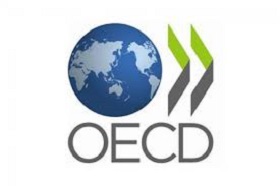Analytics, Economics, Latvia, Legislation, Markets and Companies, Technology
International Internet Magazine. Baltic States news & analytics
Friday, 26.04.2024, 12:50
OECD: Latvia should promote the use of e-services
 Print version
Print version |
|---|
Latvia has recently implemented numerous legal and structural reforms aimed at stimulating growth and well-being and promoting inclusiveness, the report says.
First, to address high structural unemployment the government has introduced individualized support that includes a health assessment, consultation and a motivation program.
Second, an Action Plan for the Improvement of the Business Environment introduced measures to modernise the business environment, including on-line company registration; a monitoring system of insolvency proceedings; public administration e-services; a single account for all tax payments; English communication with the State Revenue Service and specialisation of judges in the courts.
Finally, the recent tax reform took some steps in reducing labour taxes on low-income earners, reducing unemployment, encouraging formal employment, and addressing the emigration of young workers. These are just a few examples. ''It is hardly surprising, given this evident commitment, that Latvia ranks 19th out of 190 countries in the 2018 World Bank Doing Business Report,'' the report says. ''And yet there is still more progress to be made. There is no room for complacency, especially when you consider that Latvia’s ranking has moved down five places since 2017, with a similar drop in rankings also in the Global Competitiveness Index: Latvia’s was 49th in 2016-17, down from 44th in 2015-16 and 42nd in 2014-15,'' the report says.
''Latvia is still facing important challenges improving its business environment. For example, courts and public services have not always kept pace with the realities of doing business in the digital age, which is marked by new technologies, business models and financing options. What’s more, many businesses face statutory and administrative burdens within existing institutions and regulations, which can be costly and affect their ability to foster inclusive growth and well-being. And where conflicts do occur, parties often do not have adequate access to the full spectrum of dispute resolution mechanisms,'' the report states.
''These challenges go to the heart of the capacity of business to help promote inclusive growth. This is because the ability of businesses to address legal problems can help create jobs, reduce work days missed, provide stable housing, resolve debt issues and stimulate business activities,'' the report goes on to say.
The OECD report then went on to share some main recommendations Latvian can make to boost the quality of the business environment in the country:
First, the study encourages Latvia to modernise and broaden the scope of its Commercial framework to consider modern forms of business organisation. This can include start-ups as well as a broader set of financing options, such as crowd-funding and provisions for “freedom to contract”, in cases where matters are not regulated in the Commercial Law.
This should not be understood as a call for new hard laws, but rather a systematic regulatory approach taking into account all types of regulation, ranging from soft law and self-regulation to mandatory law. To complement this, Latvia could also introduce legislative amendments clarifying the interpretation of the Commercial Law where needed. Courts and public services could also contribute to an enabling culture through a more facilitative interpretation of the Commercial Law.
Second Latvia should further enhance the accessibility and user-centricity of services, including through the reduction of administrative burdens and enhancing integration and digitalisation of services. For instance, mandating two stages for the merger and acquisition process could be optimised. The OECD study found that businesses would save almost 1 600 EUR (which accounts for around 25% of the total administrative cost) if the first pre-notification stage was eliminated, since companies’ intention to merge has to be published in the subsequent stage anyway.
Undertaking a business-focused approach would entail designing and delivering quality and needs-based services that support the full cycle of a business journey – from registering companies and helping them obtain the necessary permits to obtaining legal assistance and addressing legal problems.
Third, while there is considerable interest in alternative dispute resolution (ADR) mechanisms in Latvia, they are not widely used in practice. Latvia should strengthen the coherence, trustworthiness and effectiveness of its dispute resolution mechanisms and consider their integration into one-stop-shops. This includes building on the measures already proposed in the Action Plan for the Improvement of the Business Environment to step up efforts to promote commercial mediation, improve the quality of the arbitration framework and enhance the specialisation and capacities of the judiciary to deal with commercial disputes.








 «The Baltic Course» Is Sold and Stays in Business!
«The Baltic Course» Is Sold and Stays in Business!

